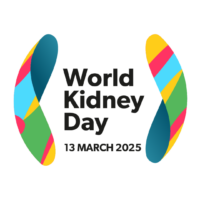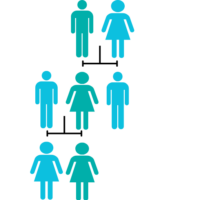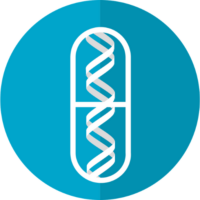-
World Kidney Day 2025: Detect early, protect kidney health
Chronic kidney disease (CKD) is a major global health issue – affecting an estimated 1 in 10 people – yet it is frequently overlooked on health agendas worldwide. In its early stages, CKD is often asymptomatic, and many individuals are unaware that they have CKD until the disease has progressed to later stages, where it becomes harder and more costly to treat – with patients facing the prospect of dialysis or kidney transplant. This makes early CKD detection critical to improving patient outcomes and reducing the growing health and economic burden of CKD worldwide. Recognising this, the World Kidney Day campaign this year is centred around the theme: “Detect early, protect kidney health.”
-
Beyond weight loss: The potential of GLP-1 receptor agonists to reduce the prevalence of obesity-related diseases
Addressing growing rates of obesity and its increasing strain on healthcare systems has become a key focus for many public health strategies around the globe. As part of the evolving landscape of obesity interventions, GLP-1 receptor agonists (commonly referred to as GLP-1 agonists) have emerged as a promising pharmacological solution. But how effective are GLP-1 agonists as part of a broader public health obesity strategy?
-
NEWS: England faces £1.2 billion in healthcare costs if Covid-19 lockdown alcohol consumption trends persist to 2035
When the Covid-19 pandemic hit in early 2020, drinking habits shifted significantly for many. But what happens when those pandemic-era drinking habits stick around? Recent research from HealthLumen explores the long-term consequences of changes in alcohol consumption during the pandemic, and the findings are stark: if those patterns continue until the end of 2035, England could face nearly 10,000 additional premature deaths, over 147,000 excess cases of disease, and £1.2 billion extra in healthcare costs.
-
Demonstrating the value of cascade screening using microsimulation modelling: A pathway to faster diagnosis and improved patient outcomes for genetic diseases
Earlier diagnosis can make all the difference for individuals with genetic diseases. Delayed diagnosis hinders timely disease management and treatment access, meaning that progression to late-stage disease can occur more rapidly, likely leading to a significant increase in the health and economic burden of these conditions for patients, their families, and healthcare systems. Screening programs aim to identify individuals with genetic conditions earlier, with cascade screening in particular providing one way to help transform outcomes for patients.
-
The Inside CKD online hub: Turning research into policy action
As part of AstraZeneca’s Accelerate Change Together (ACT) on CKD programme to drive chronic kidney disease (CKD) change across the healthcare ecosystem, the Inside CKD project stream projected the clinical and economic burden of CKD from 2022 to 2027 across 31 countries and regions. The results have recently been compiled into a comprehensive portal on the Inside CKD website.
-
Genomics and precision medicine: The new frontier for microsimulation
“Genomics requires a form of modelling that can capture individual genetic differences and responses to therapy – a purpose to which microsimulation is eminently suited.”
This quote, from a seminal review paper by Professors Deborah Schofield and Rupendra Shrestha of Macquarie University, pioneers in applying microsimulation techniques for modelling the costs and benefits of genomic medicine, formed the basis for a fascinating recent discussion with the HealthLumen team, on the role of microsimulation modelling techniques in precision medicine.





